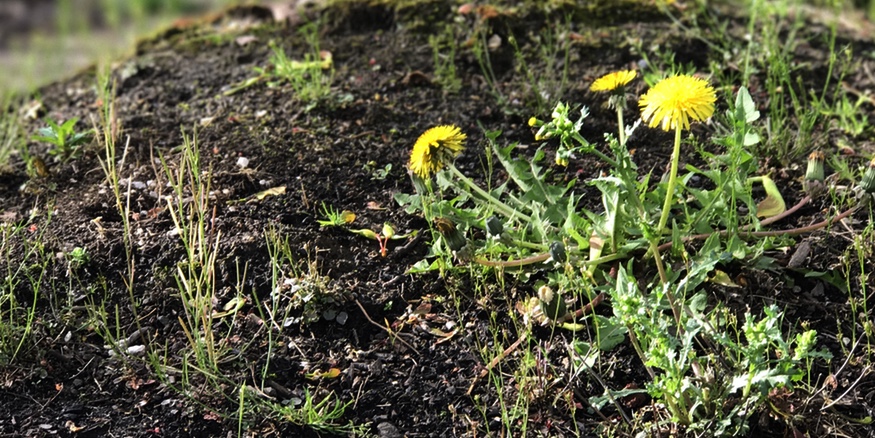Science Is Happening All Around You
What do you imagine when you think of “science”? White coats, test tubes, beakers? Crazy hair and bowties? Musty books of facts?
How about a rainbow? Or the blue of the sky? Under it, grass, green, absorbing energy from the sun. And the sun, its fires lasting hundreds of millions of lifetimes, its planets rotating on their axes, revolving around it, as it describes its own arc in its galaxy of a hundred billion other stars.
We often think of science as a body of knowledge or set of rules, when “science” refers to a process of discovery: observe the world, develop theories about how it works, test them.
The sun comes up every day. Given light, heat and nutrients, the blade of grass prospers. Deprived of them, grass withers. Cows eat grass, gain energy and mass from it, and grow. Humans eat grass and feel sick to their stomachs. These things repeat daily, constantly - they’re testable, if only someone will ask questions for them to answer. They’re science, waiting for their scientists.
Science ignores ideology. Science isn’t liberal, isn’t conservative, isn’t libertarian. It’s not socialist or communist. Ideologies tell you what to do and expect based on a system of beliefs. Science informs you of what to expect based on testable theories which we update and refine in response to the testing. Ideologies spring from ideas while science describes reality.
Humans don’t always a perfect job as scientists. We’re arrogant, greedy, scared. We easily deceive ourselves. We’re tribal, as swayed by authority as dogs. We cling to ideology long past the point where it stops serving us, often well into self-harm. I understand why people sometimes come to doubt science - but the process of science is not broken; its executors sometimes are.
It’s healthy to doubt scientists… and science itself encourages it. Doubt a claim? Repeat the experiments that support it. If you can’t successfully repeat them, try to understand why. If there’s no evidence to support it, it’s not real.
Some aspects of science make people uncomfortable:
- Questioning authority
- Changing your mind
- Revising facts and knowledge
- Admitting you’re wrong
- No priesthood desired - anyone can conduct science
- Contradicting ideology
There’s a word for people who insist on ideology, refuse to be questioned and refuse to change their position with new information: bully. Does someone who refuses to show you the respect they demand themselves deserve your attention? And how’s that working out for you?
Feeling uncomfortable due to a scientific claim is a great way to learn and grow as a human. You do have a choice: you can stubbornly cling to your precious beliefs like a child to a favorite toy, or you can examine why you’re uncomfortable and explore how to deal with it.
I can share an example of this from my own experience. I’m uncomfortable with the claim that GMOs are not harmful. There’s a strong case, scientifically, that it’s true that GMOs are not harmful. But many of my friends have strong knee-jerk emotional reactions against GMOs. I’m not uncomfortable with the scientific arguments that are pro-GMO. I am uncomfortable - and scared - of being open about that with people I care about because I don’t want to be in conflict with them.
The world is so full of beauty and wonder… mathematics, chemistry, biology, physics: the nuclear reactions that fuel stars, leading to the chemical reactions that sustain life, to the ideas from which we built wires, transistors and the Internet… who needs ghosts? Ghosts are compelling stories, but the most compelling stories of all are the ones right outside your window… the true stories.
Science is happening all around you, all the time. All you have to do is open your eyes and start asking questions.





